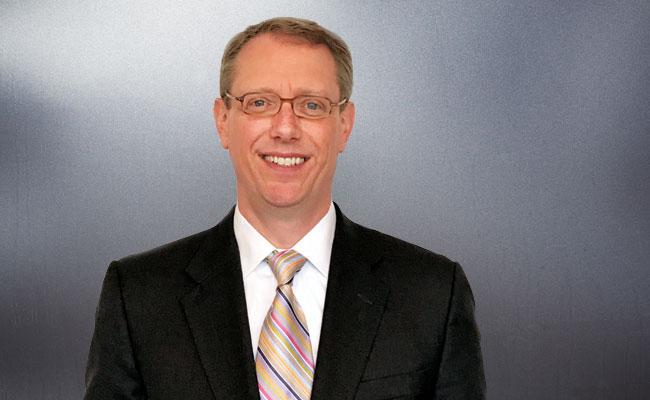Expert Interview with Tetra Tech's John Sachs, Director of Project Finance
Accelerating investment in aging water infrastructure through the U.S. government’s WIFIA program

John Sachs has more than twenty years of experience in executing private equity and debt placements, mergers and acquisitions, restructuring, project finance, and PPP transactions in the energy and infrastructure sectors. He has led advisory teams on successful transactions on three continents. Mr. Sachs has been responsible for all aspects of due diligence, feasibility studies, structuring and running tenders for investment, valuation, risk assessment and raising debt and equity for projects. He has led large, multidisciplinary teams that have closed transactions in excess of US$6 billion in value. Clients have included private sector energy and infrastructure developers, utilities, lenders, and governments.
How is the U.S. government helping accelerate investment in critical water projects in the United States?
With America facing a more than US$2 trillion infrastructure deficit, in December 2016 Congress passed the Water Infrastructure Improvements for the Nation Act. This legislation is meant to catalyze new investment in the sector and fund the Water Infrastructure Finance and Innovation Act—or WIFIA—program. WIFIA is designed to accelerate investments and bring the public and private sectors together to deliver critical water projects across the country. WIFIA is administered by the U.S. Environmental Protection Agency (EPA) and provides a critical long-term, low-cost, customized capital solution for U.S. water infrastructure.
Why is the WIFIA program important and who does it help?
As local governments and other entities face significant challenges related to aging infrastructure and increasing demand, they can take advantage of one of the most substantial new U.S. government programs aimed at addressing the infrastructure deficit. The WIFIA program can cover up to 49 percent of eligible project costs. It includes attractive and flexible financing terms: repayment terms of 35 years, up to 5 years of interest capitalization period, and an interest rate equal or slightly greater to the U.S. Treasury rate of a similar maturity.
The WIFIA program presents an important opportunity for local, state, and federal governments and utilities to build, rehabilitate, or expand their water and wastewater infrastructure. The range of borrowers is fairly broad—local, state, tribal, and federal government entities; partnerships and joint ventures; corporations and trusts; and Clean Water and Drinking Water State Revolving Fund (SRF) programs. WIFIA enables agencies to move their critical infrastructure projects forward, helping prevent a lapse in service or other disruptions that can result from unaddressed infrastructure needs.
What types and sizes of projects are eligible for WIFIA funding?
WIFIA has 13 identified project priorities covering a range of water infrastructure projects. Eligible projects include conveyance and treatment, drinking water treatment and distribution, and enhanced energy efficiency projects at drinking water and wastewater facilities. Borrowers also can apply for funding for desalination, aquifer recharge, and water recycling projects. Property acquisition may be funded if it is integral to an eligible project or if it will mitigate environmental impact. Applicants can also bundle projects, such as a combination of eligible projects secured by a common security pledge or submitted under one application by an SRF program.
The minimum project size is $20 million, and $5 million for small communities with populations of 25,000 or fewer residents. Projects can be bundled into a single application for at least $20 million. Private borrowers must demonstrate that they have the support of the affected state, local, or tribal government jurisdiction in which the project is located.
Various costs are considered eligible for WIFIA support: development phase activities such as planning, environmental review, permitting, design, and other pre‑construction activities; construction, reconstruction, rehabilitation, and replacement activities; real property and water rights acquisition, environmental mitigation, and construction contingencies; and capitalized interest and reserve funds.
What advice do you have for applicants to this new program?
Applicants should be certain that the projects they are proposing clearly fall among the program’s 13 identified project priorities. Those priorities determine which projects that submit a letter of interest will be invited to submit an application. We strongly advise applicants retain outside specialized technical, financial, and legal advisors, particularly when there is private participation, to support them through the development of the formal proposal and negotiation of financing agreements. This will save applicants money in the long run and accelerate the transaction process.
How can Tetra Tech help WIFIA applicants?
Tetra Tech can support applicants by providing integrated technical and financial advisory services. We provide full lifecycle support for energy and infrastructure projects from feasibility studies, technical, and environmental assessment, through structuring, negotiating, and financial close. We can support clients throughout the entire WIFIA process, including support for project selection and scoping, letter of interest, financial analysis, application, and negotiations. Our team members have extensive experience working with Department of Transportation’s TIFIA program, which was used as a blueprint for WIFIA.
Learn about Tetra Tech’s financial advisory services and support for clients seeking access to WIFIA funding.

